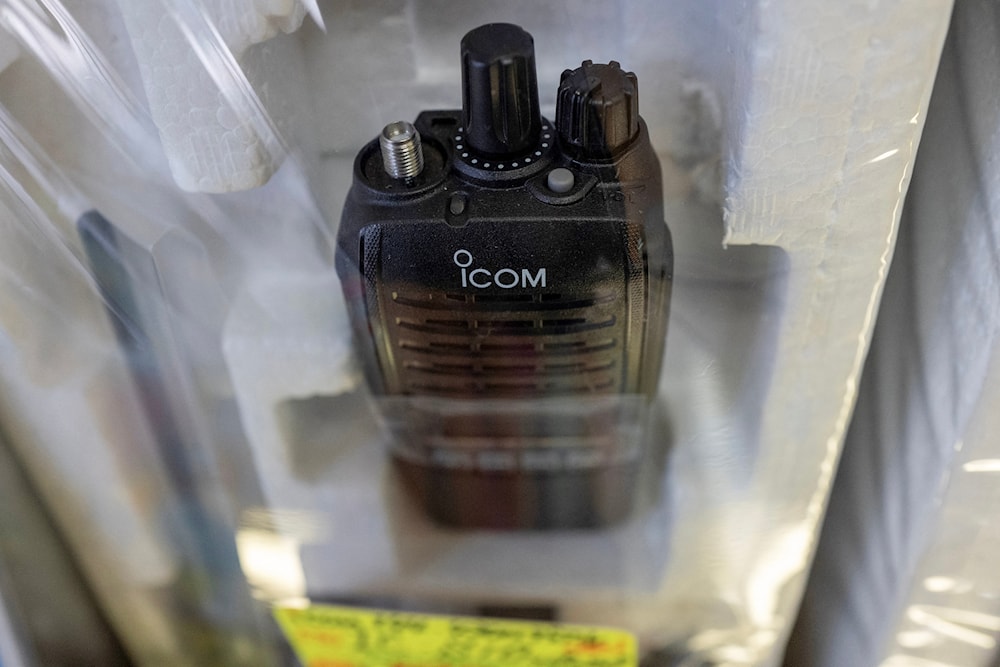Japanese firm says no longer produces radio involved in Lebanon blasts
Japanese firm Icom says the IC-V82 handheld radio was discontinued about 10 years ago and has not been shipped from the company since then.
-

This photo shows a walkie-talkie device with the Icom logo at a shop in Tokyo's Akihabara electric district on September 19, 2024. (AFP)
Japanese company Icom pointed out on Thursday that it discontinued production of the radio model reportedly involved in the recent explosions in Lebanon around a decade ago.
Lebanon's Ministry of Health reported that at least 20 people were killed and more than 450 injured in Wednesday's second wave of Israeli electronic attacks that led to the explosion of walkie-talkies used by the Lebanese Resistance group's members.
This followed the previous day’s simultaneous explosion of hundreds of pager devices used by Hezbollah, which killed 12 people, including two children, and injured up to 2,800 others across Lebanon.
"The IC-V82 is a handheld radio that was produced and exported, including to the Middle East, from 2004 to October 2014. It was discontinued about 10 years ago, and since then, it has not been shipped from our company," Icom stated.
The firm also clarified that the production of batteries required for the device had been discontinued and that the absence of a holographic seal, which is used to authenticate genuine products, made it impossible to confirm whether the device had been shipped by Icom.
Additionally, Icom emphasized that products destined for overseas markets are sold exclusively through authorized distributors, claiming that its export program adheres to Japanese security trade control regulations.
"All of our radios are manufactured at our production subsidiary, Wakayama Icom Inc., in Wakayama Prefecture, under a strict management system... so no parts other than those specified by our company are used in a product. In addition, all of our radios are manufactured at the same factory, and we do not manufacture them overseas," the statement read.
"Israel" detonated two-way radio receivers widely used in Lebanon in a second wave of its electronic terrorist attack after blowing up telecommunication pagers on Tuesday, Axios reported, citing two informed sources.
According to the sources, the terrorist attacks, perpetrated by "Israel", were meant to "increase paranoia and fear in Hezbollah's ranks" and to pressure the Resistance into changing its strategy on the northern front.
"The goal was to convince Hezbollah that it is in its interest to disconnect itself from Hamas and cut a separate deal for ending the fighting with Israel regardless of a ceasefire in Gaza," one of the sources indicated.
They further revealed that the decision to initiate the second wave of attacks right after the first one followed Hezbollah's investigation into the pager blasts, which could have uncovered the security breach in their walkie-talkies.
Read more: Explosives used in pager attack can bypass scanning: Security sources

 3 Min Read
3 Min Read








